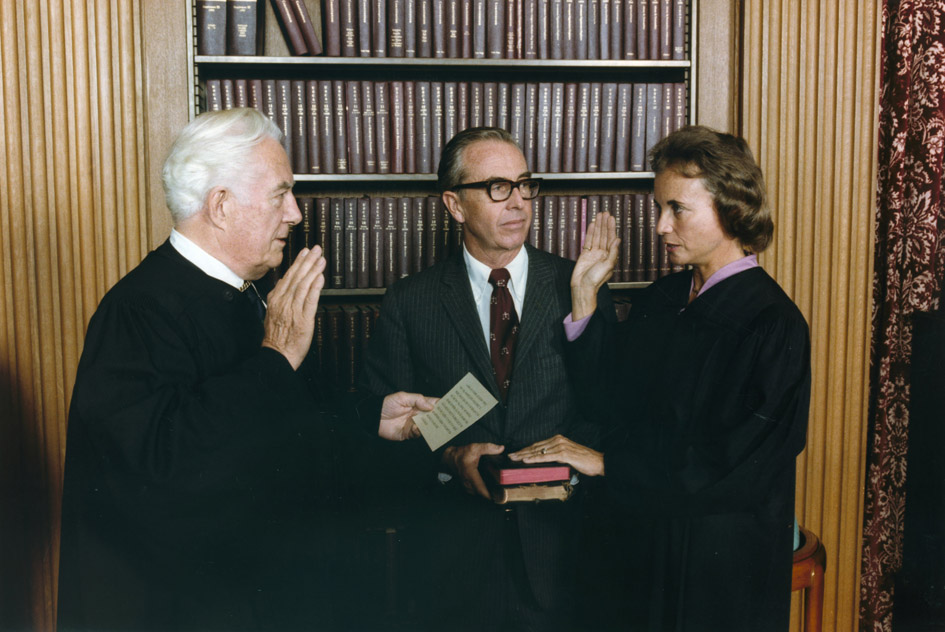OPINION|
“Civil and Principled.”
That’s how the late Supreme Court Justice Sandra Day O’Connor, the first female Justice, was described at her funeral December 23, 2023.
Wow. Who wouldn’t want to have his/her life described in that way?
At the funeral, Justice O’Connor was remembered as someone who sought common ground and was able to compromise on decisions without compromising her principles. That’s one of the reasons she was the deciding vote on dozens of Supreme Court decisions during her time on the Court.
Her commitment to principles was timely because I have been thinking a lot lately about principles. While most of us want to live a principled life, I now wonder how many of us could pass Justice O’Connor’s Principles Test.
I am afraid a lot of us approach principles backasswards.

If we look up the definition of principles, we find something like this: Principles are fundamental truths or propositions that serve as the foundation for a system of beliefs or behaviors or for a chain of reasoning.
Said another way, principles provide the constant guide through life, no matter who is watching and regardless of whether following our principles end up negatively impacting us personally. In short, actions should flow from principles.
Too often, we take actions as they occur and then try to find some principle that supports those actions. And if our principles were not squishy enough, the emergence of “whataboutism” has made them even more pliable — people simply adapt their principles depending on what someone else has done or is believed to have done.
Here’s what I have been struggling to understand:
If we tell a lie, repeat a lie, or allow a lie to stand unchallenged, what is the guiding principle? Truth doesn’t matter?
If that’s the guiding principle, what’s our response to the ridiculous story our teenager tells us about why he/she came home three hours after the midnight curfew with the now dented family car — “Sounds good to me, sleep well”?
How about when one of our coworkers falsely blames us for losing the company’s Number One customer? Based on the guiding principle of “Truth doesn’t matter,” we are obliged to shrug our shoulders and start updating our resume.
When people cheer about an 80-year-old man being hit in the head with a hammer in the middle of the night by an unknown intruder, what guiding principle does it reflect? Probably NOT “respect your elders.”
If endorsing elder abuse is the guiding principle, then we should be prepared to accept it when something similar happens to our 80-year or older father and mother, grandfather and grandmother, uncle or aunt, church parishioners, next door neighbors, all senior citizens. Based on that principle, our response should be: “Oh, too bad, Gramps. But really it was Grams’s fault. You should tell her not to say and do things that upset people. She made the guy mad. What else could he do? He had no choice.”
Principles should be reasoned — and a constant guide
If we make excuses for the anonymous calls, texts and emails; chuckle at the foul language and threats on anonymous voice mails; accept the anonymous bomb threats and fake SWAT responses as normal; and then try to ignore the actual violence — or even worse, participate in any of these ourselves — what’s the guiding principle? Bullying and intimidation are okay?
If that’s the principle, then no complaining about our middle school daughters or granddaughters getting obscene phone calls, or our high school sons or grandsons getting physically abused by the school bullies. Also, no getting upset when the SWAT team shows up at your house in the middle of the night with helmets on and guns drawn, or when your business/school/church evacuates because of a bomb threat. That’s just the way it is, right? Stuff happens.
(By the way, bullying in 2024 is different than 30 or 40 years ago. Back then, we knew who the bully was — name, address, phone number, parents, etc. — so there could be accountability in one or more ways. Today’s bullies are committing criminal acts and doing so anonymously to avoid accountability. Very courageous indeed.)
If we condone violence to resolve issues or deal with those we don’t like, then it must be a guiding principle. If that’s the case, we shouldn’t complain when our employees duke it out over disagreements with each other, vendors, customers. The publications director and graphic artist disagree on the best font and color for the flyer — fist fight. The CFO and the marketing director argue about budget — fist fight. The sales manager has had it with a difficult vendor — fist fight. Same with our kids in school, family members, neighbors, church softball team, and on and on.
Selective quoting from the Bible doesn't cut it
A number of people cite the Bible as their guiding principle. Absolutely appropriate and commendable. But when we selectively quote from the Bible; ignore the first two commandments and treat the other eight as optional; want to edit some parts of the Bible to suit our needs; or compare ourselves to a Biblical figure, we probably forfeit our ability to claim the Bible as a guiding principle. It either is or it isn’t….in its entirety. Practicing BWC — Bible When Convenient — won’t do. When we ignore the complete Bible and only reference the parts that support our argument, we run the risk of both being revealed and embarrassed, as illustrated in this memorable scene from The West Wing:
And there are other principle contradictions when being selective with the Bible’s content as described in this July 2023 opinion column by Michael Pulley published in the Springfield News-Leader.
None of us is perfect. We’re human, so it’s unlikely there will ever be a time that our actions are 100 percent congruent with our guiding principles. But surely we can do better at living up to the principled example of Justice O’Connor.



